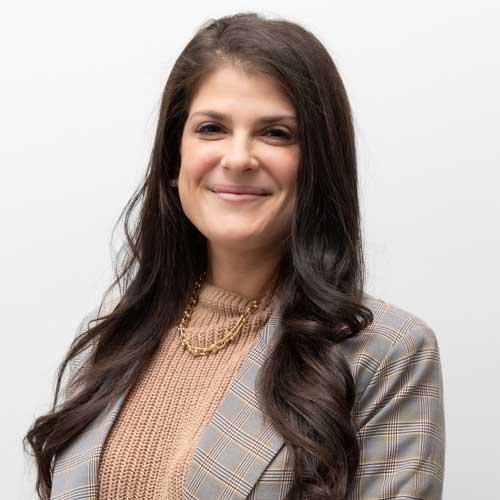A 2019 study from the National Institute on Alcohol Abuse and Alcoholism (NIAAA) found that 14.1 million American adults met the criteria for an alcohol use disorder (AUD).[1] Sadly, less than 8% of that group received the needed treatment. Recognizing the signs you have a drinking problem can lead you to seek life-saving interventions.
Alcohol use disorder can impact every aspect of your life. Signs you have an alcohol problem can destroy your physical health, leading to problems like pancreatic and liver disease. It can also increase your risk for certain types of cancers. AUD affects your mental health and worsens pre-existing mental health symptoms such as depression.
Fortunately, there are effective, evidence-based treatments for alcohol use disorder. Getting treatment for AUD now can reduce and even eliminate the adverse effects of alcohol on your health and quality of life.
What Is Alcohol Use Disorder and How to Know If You Have a Drinking Problem?
The NIAAA and other prominent health organizations define alcohol use disorder and substance use disorder as medical conditions.[2] Specifically, AUD is a brain disorder that may be mild, moderate, or severe. The misuse of alcohol can cause long-term changes in the brain that make an individual more vulnerable to relapse. In this way, AUD perpetuates a vicious cycle.
Alcohol use disorder is known by many terms, including alcohol addiction, alcohol abuse, and alcoholism. By any name, the condition is characterized by a person’s inability to control or stop their alcohol use despite suffering negative consequences because of it. Those consequences may involve your physical or mental health, relationships, career, education, and even freedom.
Signs You Have a Drinking Problem: How to Identify Alcohol Use Disorder
The Diagnostic and Statistical Manual of Mental Disorders, Fifth Edition (DSM-5) provides the criteria health professionals use to diagnose AUD. Your healthcare provider may ask several questions to help determine the presence and severity of alcohol use disorder. However, even without the help of an addiction specialist, these drinking problem signs will help you realize that you are developing a drinking problem.
1. Friends and Family Members Are Concerned About Your Drinking
The people who love you want the best for you. While their perspectives may be incorrect, if friends and family are concerned about your frequency or level of drinking, you should listen. Becoming defiant or combative when confronted about your alcohol consumption may also be a sign you have a drinking problem.
2. You’re Consuming Alcohol to Self-Medicate: A Sign of a Drinking Problem
Drinking to manage the symptoms of a mental health condition can lead to alcohol dependence and AUD. Many people drink to ease the symptoms of depression or anxiety. While alcohol can provide temporary relief of some mental health symptoms, it is a depressant and will worsen symptoms in the long run.
3. You Experience Alcohol Withdrawal Symptoms: Key Signs of a Drinking Problem
When your body becomes dependent on a substance, it goes through withdrawal when that substance is taken away. Withdrawal symptoms may include:
- Flu-like symptoms
- Irritability
- Headache and body aches
- Digestive problems
- Anxiety
- Sadness or depression
- Shaking
- Cravings for alcohol
If you experience withdrawal symptoms when you try to reduce your alcohol use, it is a sign your body has become dependent on the substance.
4. You’ve Unsuccessfully Tried to Reduce or Control Your Drinking: Signs You Have a Drinking Problem
“I can quit anytime” is the refrain of many people with AUD. If you have seriously tried to stop or reduce the amount of alcohol you drink but can’t manage to do it, you may have AUD. Alcohol not only creates physical dependence, but it also creates emotional and psychological dependence. Alcohol disrupts the balance of neurotransmitters in the brain.[3] This can affect your thoughts, feelings, and behavior.
5. You Drink in Unsafe Conditions: Drinking Problem Signs to Watch For
Having one drink too many on rare occasions may not indicate an addiction problem, but habitually using alcohol when it makes you or the people around you unsafe is a sign of a problem. Driving while intoxicated or being inebriated when you are responsible for the safety of children or other dependents are signs of problematic drinking.
6. You Don’t Want to Go Places Where Alcohol Isn’t Permitted: Signs You Have an Alcohol Problem
In time, alcohol use disorder can take over your whole life. If you plan your social outings around drinking or refuse to go to places/events where drinking is discouraged or not allowed, you may be developing signs of an alcohol problem.
7. Your Alcohol Tolerance Grows: A Clear Sign of a Drinking Problem
As the body becomes dependent on alcohol, it needs more frequent and larger doses to reach the desired effects. Some people may have a naturally high tolerance for alcohol, but in most cases, being able to drink others under the table is a sign of a drinking problem.
8. You Hide or Lie About Your Drinking: Drinking Problem Signs to Recognize
Being dishonest about your alcohol consumption is a clear sign you have a drinking problem. If you hide alcohol or lie about how many drinks you’ve had, it’s time to speak with an addiction specialist about committing to a recovery program.
9. Alcohol Use Is Disrupting Your Life: How to Know If You Have a Drinking Problem
Blaming everyone and everything but alcohol is a common theme among those with untreated AUD. Some examples include:
- Strained relationships
- Being disciplined at work or experiencing job loss
- Problems at school
- Legal consequences
- Financial problems
- Health issues
If you are experiencing the negative impact of alcohol on your physical, social, or mental health, talk to someone about alcohol rehab in Greenwich.
10. Your Day Revolves Around Alcohol: Signs You Have an Alcohol Problem
As the effects of alcohol misuse become more severe, your entire day may revolve around either getting, using, recovering from, or thinking about alcohol. Individuals with AUD often lose touch with friends and family members who don’t use alcohol or those who have expressed concern.
Who Is at Risk for Alcohol Use Disorder? Recognizing Signs of a Drinking Problem in At-Risk Individuals
AUD can affect any person from any walk of life. However, some people do have a greater risk of developing signs of a drinking problem. Genetics plays a significant role in all types of addiction.[4] The risk of AUD is higher for people with a close relative with AUD.
Other risk factors include:
- Having a history of emotional or physical trauma
- Social and cultural pressures
- Starting drinking at an early age
- Regular drinking over a long period
Depression and other mental health conditions also put people at a higher risk for AUD. While it is sometimes difficult to determine which came first, the overlap between conditions is significant. 18.2% of people with mental illness also have a substance use disorder. The number of people with a substance use disorder who have also been diagnosed with a mental health disorder is even more significant at 37.9%.[5]
Worried About Signs You Have a Drinking Problem? Find Help with Alcohol Rehab in Greenwich
You don’t have to live with the weight of addiction hanging over your head. Recovery is possible with the proper treatment and support. Connecticut Center for Recovery offers three different outpatient alcohol treatment programs, including dual-diagnosis treatment. Outpatient programs combine the best of traditional, evidence-based therapies with the flexibility of living at home.
If you are experiencing some of the signs you have a drinking problem, a personalized treatment plan from the Connecticut Center for Recovery can help you reclaim your life. Treatments such as cognitive-behavioral therapy, group therapy, individual therapy, and vigorous aftercare programs are successful in treating AUD. Contact us today for more information about the right treatment plan for you.
Sources:
[1]https://www.niaaa.nih.gov/sites/default/files/publications/NIAAA_Alcohol_FactsandStats_102020.pdf
[2] https://www.niaaa.nih.gov/publications/brochures-and-fact-sheets/understanding-alcohol-use-disorder
[3] https://www.mentalhealth.org.uk/explore-mental-health/a-z-topics/alcohol-and-mental-health
[4] https://www.mayoclinic.org/diseases-conditions/alcohol-use-disorder/symptoms-causes/syc-20369243
[5] https://nida.nih.gov/research-topics/comorbidity/comorbidity-substance-use-other-mental-disorders-infographic#

Alexis earned both a B.S. in Psychology and a B.S. in Family and Child Sciences from Florida State University and an M.A. in Marriage and Family Therapy from the University of San Diego. She holds licenses in Marriage and Family Therapy in Florida, Connecticut, and Massachusetts and is also a member of the American Association for Marriage and Family Therapy (AAMFT).
Alexis works with families, couples, children, and groups and also has a sub-specialty in addiction and recovery. She utilizes an integrated, systemic approach to counseling; empowering people to define what is not working for them in their lives and to discover the possibilities for making life work. In doing this, clients are guided towards identifying their strengths, accessing their resources, tapping into their potential for success, and taking action toward achieving their desired goals.
Alexis also has extensive experience in the administration of behavioral health organizations. She has developed, built, and supervised several facilities encompassing all levels of care while leading them through state licensing and The Joint Commission accreditation process.

